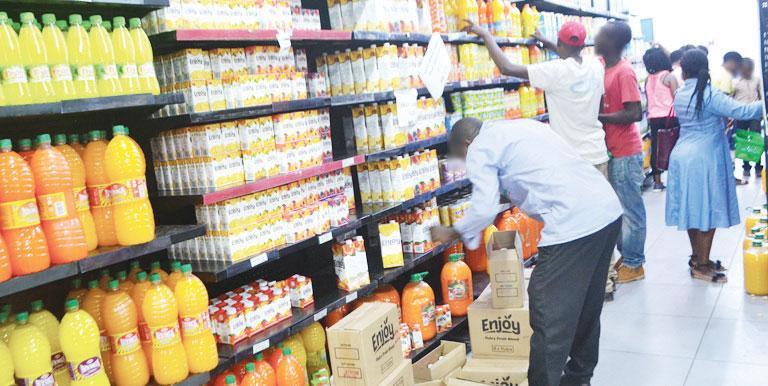Africa-Press – Malawi. Economic outlook for 2023 and beyond remains mixed and murky, with Gross Domestic Product (GDP) growth projection by the World Bank pointing to a below-target rate of 2.2 percent.
Malawi aims to attain a middle-income economies mark at least within the next eight years, a target it failed to meet within the 20 years of implementing the flopped Vision 2020. To achieve the target, the country needs to be posting at least a six percent GDP growth rate in real terms per year within the next decade.
While still nursing effects of the Covid pandemic, Malawi economy was susceptible to other exogenous shocks emanating from disrupted global supply chains due to the Russo-Ukrainian War, among other things.
This, coupled with other domestic structural challenges, pushed up cost of commodities with headline inflation— the rate at which commodity prices change at a given time in an economy— remaining on an upward spiral in the 10 months to October to 26.7 percent before decelerating slightly by 0.9 percentage points to 25.8 percent in November 2022.
But in its recent Malawi Economic Monitor issued last month, the World Bank said amid headwinds in the global economy, Malawi’s economy is projected to show subdued growth and faces considerable downside risks.
According to the report, a rapid deterioration of global growth, higher-than-anticipated energy prices, and tighter financing conditions are the primary external risks.
“Natural disasters and intensifying climate-related shocks continue to pose major downside risks to the economic outlook.
“Other risks include the persistent unavailability of foreign exchange, increasing corporate bankruptcies, inability to access affordable agricultural inputs, and rising poverty and food insecurity in the face of high inflation and weak job creation,” the World Bank says.
It says the lack of sustained economic growth, along with continued inflationary pressures and recurrent weather shocks, will make it more difficult to reduce poverty.
Meanwhile, the Bretton Woods institution says any further external shocks and sustained inflation are likely to result in increased poverty and cause rising food insecurity.
The increased frequency and severity of shocks related to climate change create additional downside risks and will require a sustained focus on adaptation investments. The World Bank Country Climate Development Report for Malawi finds that climate change shocks could reduce GDP by up to 9 percent by 2030.
But local economists and industry captains remain upbeat that the economy will peak from next year on the basis of the expected improvement in agricultural output and restored dornor confidence. The Malawi Confederation of Chambers of Commerce and Industry (MCCCI), a private sector umbrella body, says the outlook looks promising.
MCCCI President Lekani Katandula said the industry expects improvements in forex supply, agricultural output and the energy situation in the country, which will necessitate a hastened economic recovery process.
“I think 2023 could be better than 2022. We seem to have more normal rains so far, Covid is under control and hopefully Cholera will be quickly contained.
“The World Bank and the rest of the international partners are giving positive support signals, and Kapichira power is now expected to be progressively restored from February. Barring major offsetting shocks, we can look forward positively to 2023,” Katandula said.
In a separate interview Tuesday, Economics Association of Malawi vice president Betchani Tchereni also said albeit the challenges that rocked the economy in the year ending, 2023 looks promising.
He projects a good agriculture season, which he said would feed into the economy by helping stabilise food prices and contain the inflationary pressure.
He also said as development partners like the World Bank and the IMF show green light for dornor funds inflow, it would help contain pressure on the foreign exchange supply and help the local unit, the kwacha, become stable.
“This should lead to an improved Balance of Payment position. In that way, we will have a stronger kwacha also and it will help contain the inflationary pressure,” Tchereni said.
Finance Minister Sosten Gwengwe recently said the government remains committed to stabilising the economy and implementing measures to reduce the pressure exerted by various shocks.
For More News And Analysis About Malawi Follow Africa-Press






